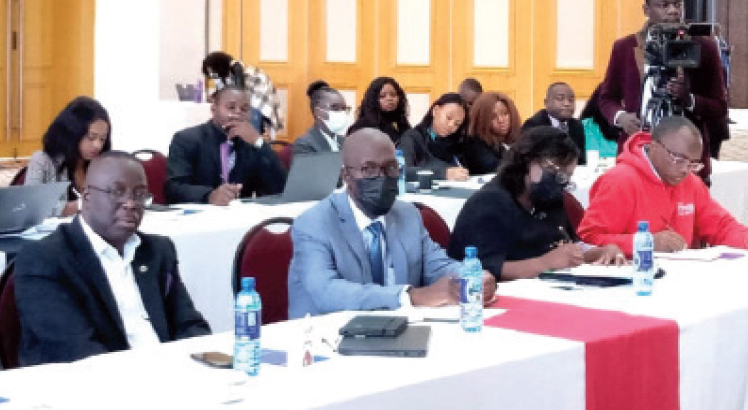World bank tips Malawi on economic stability
The World Bank says Malawi can restore short-term economic stability through a package of reforms such as flexible exchange rate management, fiscal consolidation and debt sustainability.
The bank’s country manager Hugh Riddell said this yesterday in Lilongwe during the launch of the 15th edition of the Malawi Economic Monitor (MEM) titled ‘Strengthening Fiscal Resilience and Service Delivery’ The report focuses on the last six month’s economic performance and challenges.

He said the proposed policy mix can provide confidence to the market and unlock a private sector response.
Riddell said: “Government can prioritise private sector-led solutions to chronic forex shortages, including scaling back expensive government intervention in the imports of strategic commodities while facilitating domestic and foreign investment in export sectors like agribusiness and agri-processing.
“Government can cushion the vulnerable with social protection. Price rises are hurting the poorest most, but they reflect global factors and therefore most countries struggle to respond.”
He said a more diverse economy will create resilience, but in the short-term targeted and sustainable safety nets can protect household assets through difficult times.
“In this regard, we are delighted that the board of the World Bank recently approved the $188 million scale up of government’s social cash transfer programme and enhanced climate smart public works, which includes shock-responsive financing in the event of food insecurity,” he said.
On the imperative to protect the poor in the face of severe fiscal constraints, Riddell said this calls for more efficient service delivery.
In his analysis, he said Tropical Storm Ana impacted five percent of the population, displaced tens of thousands and caused up to 2.7 percent of gross domestic product (GDP) in damages, including at the Kapichira Hydro Power Station, which represents a third of the country’s power and washing away 77 000 hectares of crop fields.
Minister of Local Government Blessings Chinsinga, who launched the MEM, said it was timely as it offers solutions to addressing some economic challenges.
He admitted that government has tight fiscal space hence the important need to enhance revenue auditing policies to ascertain what the economy is generating and the utilisation to ensure value for money.
Chinsinga said for the economy and the population to remain resilient, there is need to enhance social protection programmes to cushion the poor from adverse effects of the current economic challenges for sustainable and resilient livelihoods.
Economics Association of Malawi executive director Frank Chikuta said to achieve speedy recovery, any public sector investment must be tilted towards the growth of private sector production and productivity.
“High social investment such as in Affordable Inputs Programme has not helped the economy to grow,” he said.
The 15th edition of MEM focuses on macroeconomic policies, debt sustainability and local authorities’ fiscal dicentralisation for sustainable economic growth.






One Comment